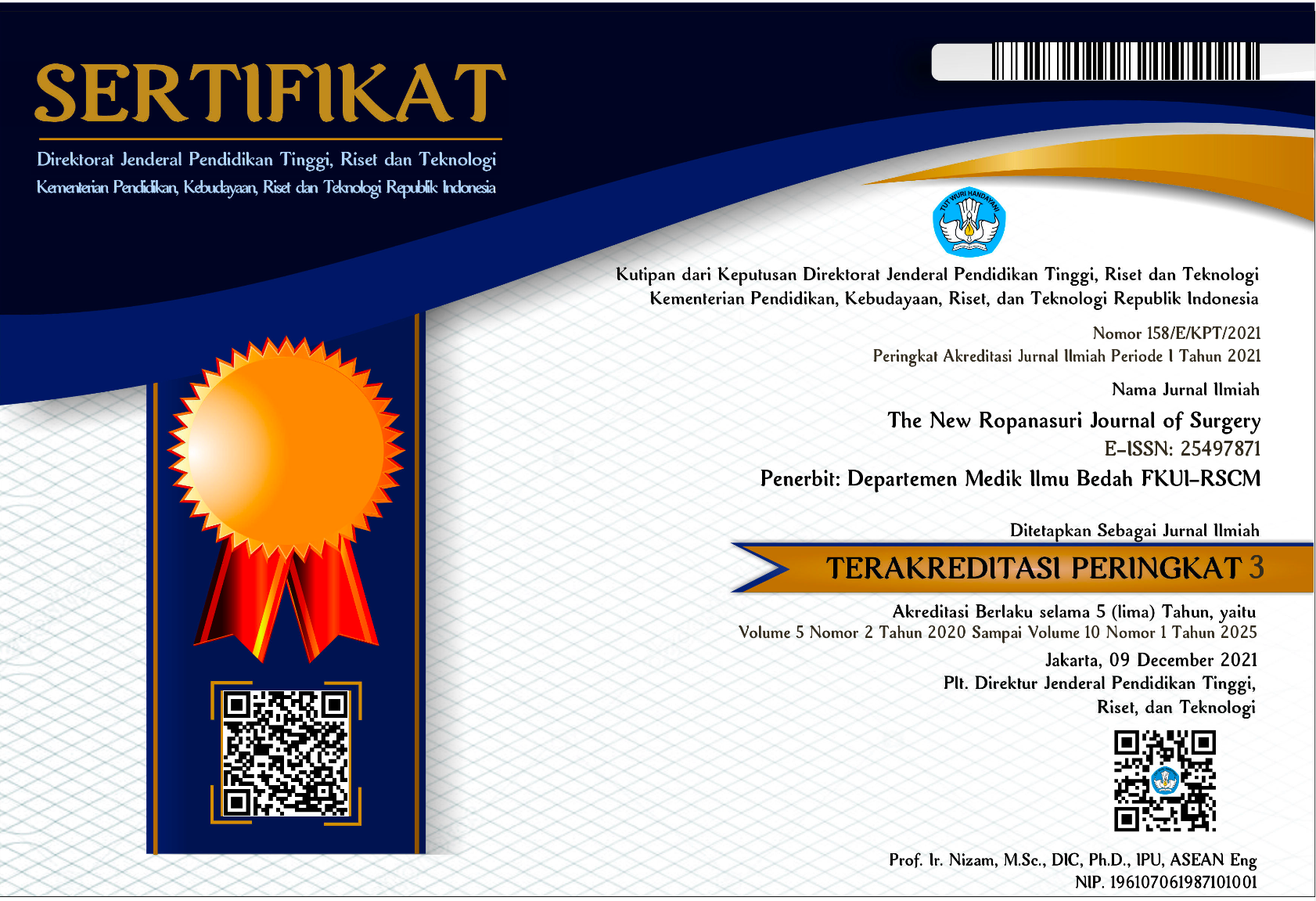Abstract
Internal hernia is a rare clinical entity. In all cases, less than 1% found as the cause of intestinal obstruction. However, delayed treatment of internal hernia may lead to necrosis of the intestines. Neonates with congenital heart disease may be at increased risk of morbidity and mortality than another concurrent disease.
A male infant was delivered with a Cesarean section due to a congenital disorder of umbilical hernia, ventricular septal defect, and aortic transposition. The infant was born full-term with a 2,515 g birth weight and 3, 5, 7 APGAR score, positive ventilation, and intubation proceeded. Prostaglandin E1 10 mcg/kg/minute, packed blood cell, and thrombocyte concentrate was administered preoperatively. The patient underwent laparotomy for intestinal resection on day-3; the necrotic intestine was found starting 70 cm from ligament of Treitz to midsection of the transverse colon. Postoperatively, the stoma was vital, and we noted its production. The infant died one day14 due to respiratory failure caused by hospital-acquired pneumonia. Infants with an internal hernia and multiple congenital heart diseases require prompt management to prevent intestinal necrosis and other respiratory-related complications.
Recommended Citation
Tamba, Riana P. and Wiradeni, Andi
(2021)
"Management of Internal Hernia in Neonates with Multiple Heart Diseases: A Case Report,"
The New Ropanasuri Journal of Surgery: Vol. 6:
No.
1, Article 8.
DOI: 10.7454/nrjs.v6i1.1102
Available at:
https://scholarhub.ui.ac.id/nrjs/vol6/iss1/8













